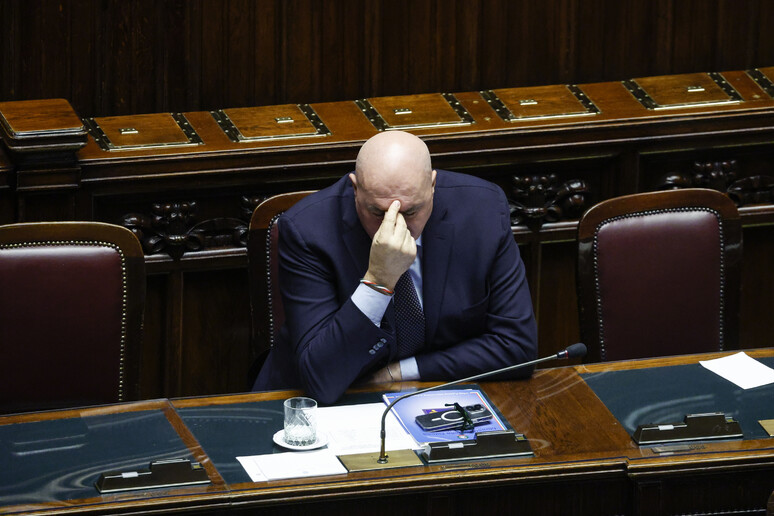Defence Minister Guido Crosetto on
Tuesday denied that his controversial remarks in a recent
newspaper interview about alleged "judicial opposition" to the
government of Premier Giorgia Meloni had been an attack on the
judiciary, saying rather that they were an expression of concern
about emerging trends.
"I had been told that in various official meetings of the
judiciary and at conferences things were being said that should
raise institutional concerns, a debate," said Crosetto in a
briefing to the House.
"Mine was not an attack on the judiciary, but reflections and
concerns about certain tendencies that I see emerging, not in a
secretive way but in a very evident way," he added.
In the interview published in Corriere della Sera on November
26, Crosetto said he had "heard about meetings of a faction
within the judiciary in which they talk about how to 'stop the
anti-democratic drift Meloni is leading us to'".
The interview sparked an angry reaction from Italian magistrates
union ANM, with its president Giuseppe Santalucia accusing
Crosetto of spreading "fake news that has no basis and damages
the institutions" and calling on him to "dispel suspicions and
shadows".
Opposition parties also condemned the remarks, with ex-premier
and 5-Star Movement (M5S) leader Giuseppe Conte saying they
amounted to accusing part of the judiciary of being
"subversive".
"I think it is legitimate that we should ask ourselves and
define, with this Parliament and not the government, the rules
within which the powers of the State engage with each other,
interact, and work together," continued Crosetto in his
briefing.
"Representation belongs to politics. Representation does not
belong to the judiciary or to the executive: according to the
Constitution it belongs to this Chamber and to the Senate, it
belongs to Parliament," he added, proposing the creation of a
"peace table" to draw up the rules for coexistence in the coming
years.
"It is not possible that there should be a clash from 1994 to
the present without bringing the discussion and the settlement
(of the dispute) back to this chamber, which under the
Constitution is the place where the rules are made," he said,
referring to the 'Clean Hands' investigations that revealed
widespread corruption among Italian politicians.
ALL RIGHTS RESERVED © Copyright ANSA











